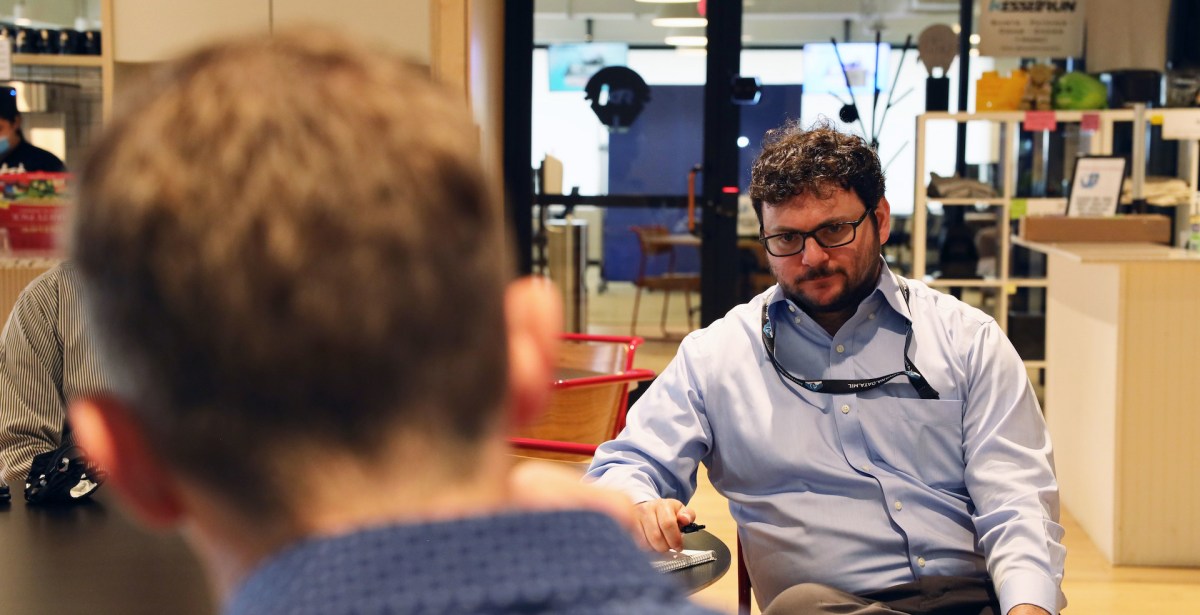Air Force to bring top-secret data into the mix in next weapons system hackathon

The Air Force this summer will host a second “hackathon” focused on enabling coders to work with classified data in isolated, secured environments — but this time, the service is looking to up the complexity.
The second run of the BRAVO hackathon will expand from including just Secret-level operational data to integrating data at additional levels of classification, like the Top Secret/Secure Compartmentalized Information level, Stuart Wagner, the Air Force’s chief of digital transformation and an organizer of the hackathon, told FedScoop on a recent episode of the Let’s Talk About IT podcast.
“Our intention is to run our next hackathon at three classification levels,” Wagner said. “And so we’re going to have multiple sets of data, perhaps tripling our complexity, just on that side alone.”
During BRAVO 0, the initial hackathon in early 2022, the Air Force set out to deliver prototypes of what Wagner calls “data-driven kill chains” — or using telemetry to drive decisions and actions — for weapon systems.
Wagner has an end goal in mind.
“The final goal here is to effectively … take data off a weapons system, extract signal from that weapon system using automated tools, produce new software or configurations, which gets updated to those weapons systems … get those updates of tactics to those who operate those weapons systems, and do it in a week,” he said.
In doing so, he explained, the hackathon also challenged the Department of Defense’s culture of siloing and hoarding data.
The hackathon produced 11 proofs of concept, many of which Wagner believes will be adopted in some form across the military. One, he said, is already operational in the “European theater.”
“I think we’re at the dawn of a new age in which our weapons systems must automatically collect data, fuse and make sense of that data using algorithms and human beings and data scientists that review that data. That then informs the operation, calibration and future development of those weapons systems,” said Wagner. “What I’m describing is an agile development process for weapons system design, implementation, execution and operation.”
Some might call it “innovation theater,” Wagner said, but what’s at stake is much greater than that.
“What I actually think these hackathons will do is build … iterative capability to enable us to fight better so that if we get into a conflict with a nation that has other values than ours, that has likely started a war with us, we can adapt faster than them using data off our weapons systems,” he said. “And so this hackathon, it might look like… innovation theater or you know, an innovation event. No, no, no. This is a capability to go fast to develop weapons systems faster during peacetime and unfortunately, if the time exists, wartime.”
During the next event, Wagner also wants to increase collaboration to more effectively deliver those kill chains.
“In order to build that, you’re going to need to collaborate,” he said. “We’re going to have to go from data off weapons systems to data scientists and the simulation and modeling community, back to the development of software, and ultimately putting that onto a weapon system. That is a nontrivial, complex process involving multiple parties.”
That sort of collaboration will have to be done remotely, Wagner said, and therefore the next hackathon will also have to integrate the cloud to support personnel working at multiple military facilities.
More than likely there will be more work to come, said Wagner, who isn’t sure he’ll meet his goal of creating these kill chains in a week during the next hackathon. And while these first two events are limited to defense personnel, he hinted that “ultimately we think there’s going to be a role to be had and played by those even outside the Department of Defense.”






